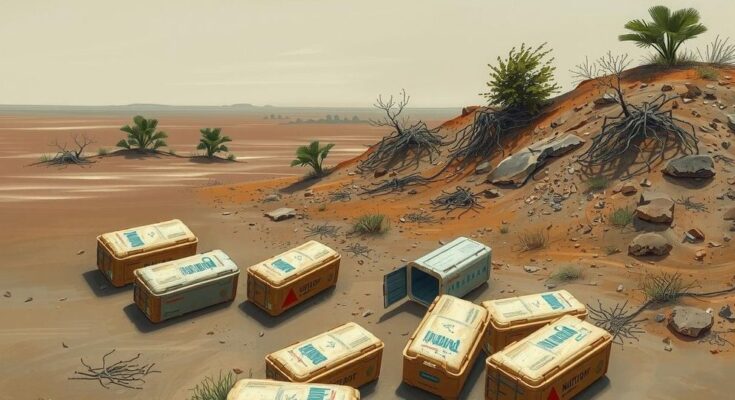Muna Eltahir of Practical Action discusses USAID’s severe funding cuts impacting Sudanese communities, particularly as they face urgent needs during Ramadan. The cuts have halted a vital project aiding 126,000 individuals with resources for crops, water, and solar energy. Despite these challenges, Practical Action seeks alternative funding to continue its essential work in regions plagued by drought and civil unrest.
Muna Eltahir, head of Practical Action charity in Sudan, expresses deep concerns regarding significant cuts from USAID that have severely impacted communities. With over 30 years of humanitarian experience, she recalls that recent aid reductions have left these communities without essential services during Ramadan. Eltahir highlights that Sudan has long faced multiple crises, including civil unrest and climate-related challenges, which amplify the urgency of humanitarian assistance.
Practical Action operates mainly in Kassala and Gedarif states, areas vulnerable to drought due to fluctuating rainfall patterns. They provide drought-resistant seeds, tools, and knowledge to help communities cultivate crops, ensuring food security and income. Additionally, they assist in constructing water points and offer solar panels through affordable payment schemes to improve access to water and power irrigation systems. Before the cuts, Practical Action supported nearly 400,000 individuals in these communities.
The recent USAID cuts have crippled a crucial $2.5 million project that aimed to supply seeds, solar power, and water infrastructure to 126,000 people. Eltahir details the distressing moment she received an email discontinuing the project, resulting in immediate layoffs of 11 staff members and halting ongoing work. Communities had been looking forward to enhanced solar lighting and water access before Ramadan, leading to her emotional visits to explain the funding situation.
While the communities demonstrated understanding regarding the decision, the suspension of critical solar panels and water tanks left them in uncertainty. Fortunately, the farmers had already received seeds and equipment to begin planting; however, the remaining resources are currently stored until further funding can be procured.
Practical Action is now actively seeking alternative funding sources to bridge the financial gap created by USAID’s withdrawal, acknowledging the organization still possesses a diverse funding base. Even though USAID comprised approximately 25% of its funding in Sudan, Eltahir remains hopeful about continuing other programs to assist the communities in need.
In conclusion, the recent cuts to USAID funding have posed significant challenges for humanitarian efforts in Sudan, particularly affecting Practical Action’s ability to provide essential resources to vulnerable communities. Muna Eltahir’s insights reveal the extent to which these reductions hamper progress in combating food insecurity and improving access to clean water and energy. Despite these setbacks, Practical Action is exploring alternative funding avenues to sustain their vital programs amid a pressing humanitarian crisis.
Original Source: www.context.news




